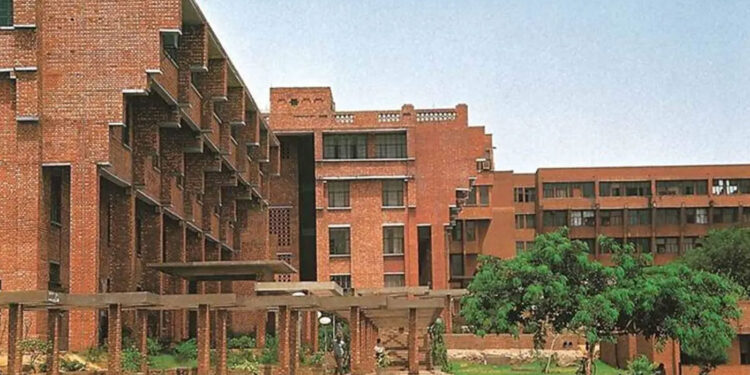The Delhi High Court issued a ruling on Monday in the case of Sanjeev Kumar Mishra v Jawaharlal Nehru University & Ors, instructing JNU to provide free hostel accommodation to Sanjeev Kumar Mishra, a visually impaired student pursuing a Master’s degree at the university.
Justice C Hari Shankar stated that according to the hostel manual, JNU is obligated to offer hostel accommodation to all differently abled students.
“The petitioner is, therefore, entitled, as of right, to hostel accommodation, provided by the JNU within its campus, free of cost, with all other entitlements to which a differently abled student is entitled under the law and the policies of the JNU, till completion of his Masters degree course in Sociology. The JNU is directed to provide, within a week from the pronouncement of this judgment, all such facilities to the petitioner,” the Court ordered.
The Court also noted that the term ‘differently abled’ is more appropriate than ‘disabled’ when referring to individuals with disabilities. It emphasized that laws such as the Right of Persons with Disabilities Act, 2016 (RPWD Act) aim to level the playing field for individuals with disabilities, ensuring they have equal opportunities.
“The RPWD Act and all laws which strive to provide support to a person suffering from a disability, merely seek to neutralize the disability, so that the person’s ability matches those of the rest of his peers, and they stand on an equal footing. This is the heart of the theory of equal opportunity, which pervades Article 14 and, indeed, the Constitution as a whole. It is because of this, that the more appropriate term to use would be ‘differently abled’, rather than ‘disabled’,” the Court explained.
Student Sanjeev Kumar Mishra approached the High Court seeking an order for JNU to allocate him a hostel room.
JNU argued that Mishra was pursuing a second Master’s level course and was not entitled to accommodation under the hostel manual.
After considering the case, the Court ruled in Mishra’s favor, noting that JNU had not provided any empirical data to support its claim that accommodating Mishra would be unreasonable. Without such data, JNU’s argument could not be upheld.
Justice Hari Shankar, in a comprehensive order, also remarked that persons with disabilities should be referred to as ‘differently abled’, emphasizing their equal standing with others.
“Given the means to bridge the gap, a differently abled person no longer remains differently abled but becomes an integral part of the homogeneous human whole. It is then that, with the neutralization of the difference in ability, the individual can fully utilize his talents and abilities. In such cases, individuals who were previously considered ‘disabled’ often equal or surpass their more able-bodied peers in their chosen professions. Mr. Rahul Bajaj [the lawyer representing petitioner Sanjeev Kumar Mishra] is a shining example,” the Court stated.
Advocate Rahul Bajaj represented petitioner Sanjeev Kumar Mishra, while JNU was represented by Central Government Standing Counsel (CGSC) Monika Arora, as well as advocates Subhrodeep Saha and Kushal.

















